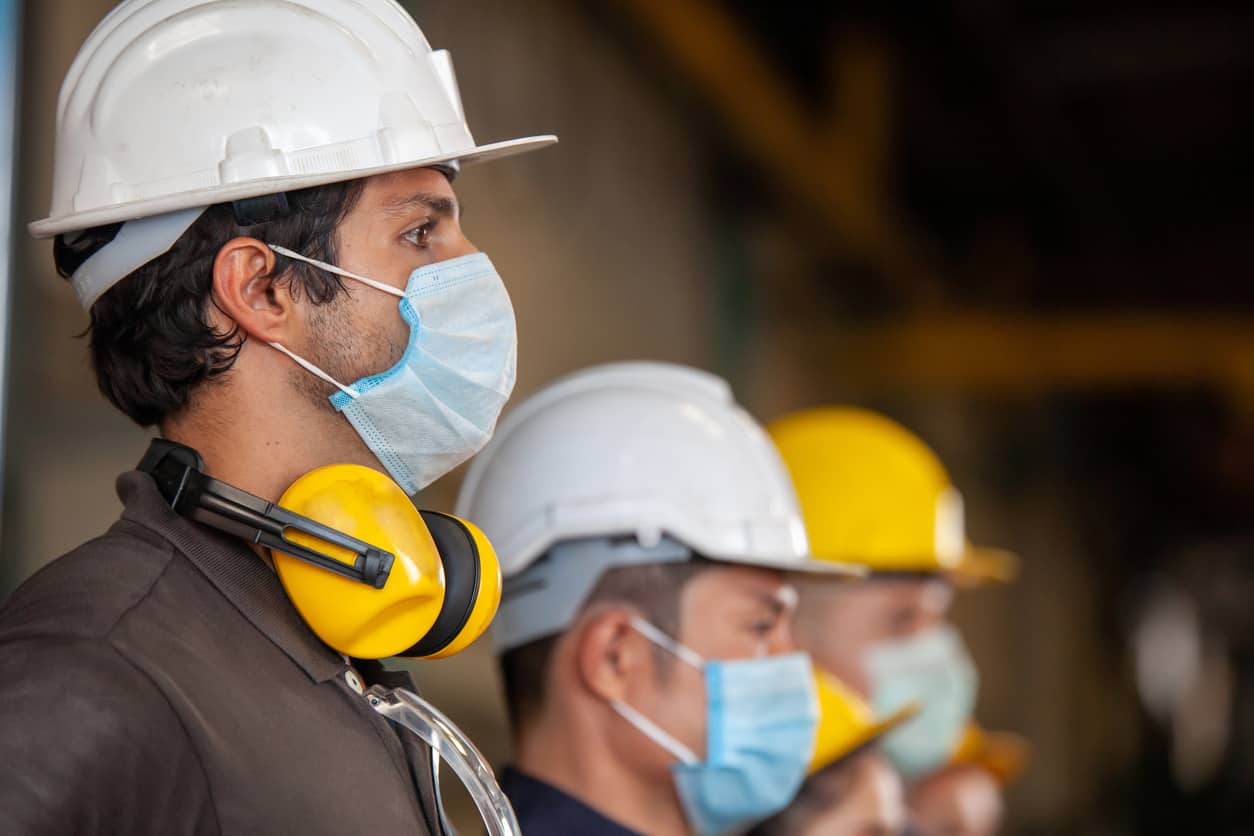Hannah Finnie is a student at Harvard Law School and a member of the Labor and Employment Lab.
The Supreme Court will hear fast-tracked oral arguments today in a consolidated set of cases challenging the Biden administration’s OSHA Emergency Temporary Standard (ETS) protecting workers against contracting COVID-19 at work and challenging a similar mandate from the Department of Health and Human Services (HHS).
The OSHA ETS requires companies with 100 or more employees to have employees either get vaccinated against COVID-19 or be subject to testing once a week and wear a mask at work. OSHA is empowered to create emergency temporary standards that can function for six months without going through the usual notice and comment rulemaking process “when it determines that a rule is ‘necessary’ to protect employees from a ‘grave danger’ from exposure to ‘physically harmful’ ‘agents’ or ‘new hazard,’” according to SCOTUSblog. Applying this standard to COVID-19, OSHA determined that COVID-19 fit the bill of being both physically harmful and a new hazard, and posed grave danger to unvaccinated workers. This rule was challenged by 27 states (led by Ohio) and the National Federation of Independent Business, which also led a challenge to the ACA in National Federation of Independent Business v. Sebelius.
The second Biden administration COVID-19 rule the Supreme Court will hear a challenge to is an HHS rule requiring health care workers at facilities participating in federal Medicare or Medicaid programs to get vaccinated, with the possibility of a medical or religious exemption.
Taken together, these two rules have the possibility of affecting the conditions of millions of workers. The OSHA ETS covers around two-thirds of the private sector and the HHS rule covers approximately 10 million workers (though some workers could be covered by both rules). The Supreme Court will be deciding whether the rules can stay in place while challenges make their way up through the courts. As a Washington Post article noted, the Supreme Court itself has stricter COVID-19 protocols than the OSHA rule requirements.
In other news, Student Workers of Columbia, a union of instructors, researchers, and teaching assistants at Columbia University, announced late last night it had reached a tentative agreement for its first contract with the school. The union and the school had been bargaining for three years, and the union went on a 10-week strike in the process of reaching this agreement.
In addition, Comic Book Workers United declared victory in its union election last night, which it says makes it the first unionized comic book publisher in the U.S.





Daily News & Commentary
Start your day with our roundup of the latest labor developments. See all
April 19
Alabama and Louisiana advance anti-worker legislation; Mercedes workers in Alabama set election date; VW Chattanooga election concludes today.
April 18
Disneyland performers file petition for unionization and union elections begin at Volkswagen plant in Tennessee.
April 18
In today’s Tech@Work, a regulation-of-algorithms-in-hiring blitz: Mass. AG issues advisory clarifying how state laws apply to AI decisionmaking tools; and British union TUC launches campaign for new law to regulate the use of AI at work.
April 17
Southern governors oppose UAW organizing in their states; Florida bans local heat protections for workers; Google employees occupy company offices to protest contracts with the Israeli government
April 16
EEOC publishes final regulation implementing the Pregnant Workers Fairness Act, Volkswagen workers in Tennessee gear up for a union election, and the First Circuit revives the Whole Foods case over BLM masks.
April 15
The Supreme Court ruled in favor of bakery delivery drivers in an exemption from mandatory arbitration case; A Teamsters Local ends its 18-month strike by accepting settlement payments and agreeing to dissolve